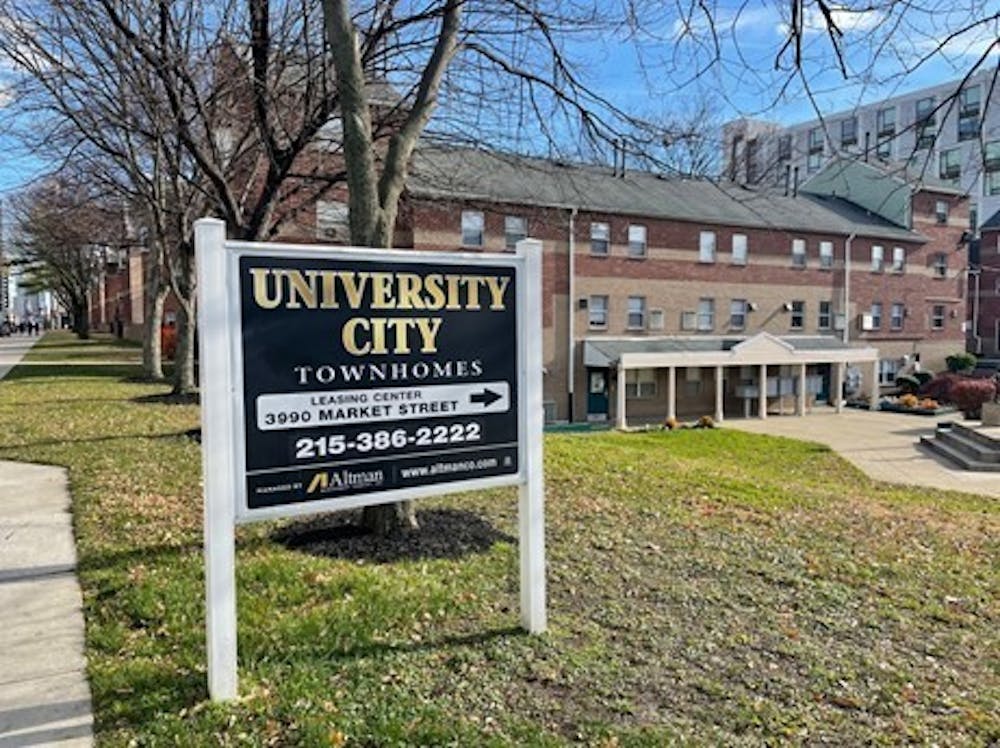
70 low-income households who live just two blocks from Penn’s campus have been told to leave their residences by July 2022. Many are senior citizens; some haven’t moved for decades.
Penn has a duty to help. It’s a unique chance to show students and the country how to value humanity over profit.
The University City Townhomes have been part of an annual affordable housing contract with the U.S. Department of Housing and Urban Development (HUD) for the past 40 years. Residents of the Townhomes are asked to pay 30% of their monthly income toward rent, with the government subsidizing the rest through housing vouchers. This is critical because almost half of the households in the Third Council District — where the affordable housing complex is located — end up paying more than 30% of their income toward rent, a level considered unsustainable.
But earlier this year, Altman Management Company, the owner of the complex, announced it would not renew its affordability contract with HUD. Instead, it plans to sell the site for massive profit and force current residents out.
For Charlemagne Marcus, who raised her children in the units, leaving would mean a loss of community, right at a time when her husband is under hospice care. Her current residence is within walking distance of those health care services and moving would be devastating.
Philadelphia currently needs 70,000 affordable housing units to meet renter demand, and the problem is only getting worse. Over the next five years, Philadelphia is at risk of losing 1,700 units of genuinely affordable housing, including the Townhomes. That makes saving them vital.
Penn can protect residents like Marcus by converting the property into a community land trust (CLT). CLTs allow nonprofits to take property off the market and control rent costs so they remain permanently affordable. They have numerous benefits for residents, including low cost, long-term stability, and increased community control. One study found that homeowners on a CLT can be 10 times less likely to default on homes than those in private units. CLTs could be an especially effective solution in Philadelphia, where nearly one in 14 renters face eviction each year.
At the moment, Philadelphia has only one CLT, the Community Justice Land Trust, which controls 36 rental units. That’s not nearly enough. In Burlington, Vt., a CLT controls over 2,000 units, which is 7% of the housing stock.
Penn has the resources to take action and protect these 70 households. It’s a tiny step, but it would transform our neighbors’ lives and put our classroom lessons into practice.
For the University, the cost is miniscule. In 2021 alone, Penn’s endowment rose by $5.6 billion—a 41% increase. The Townhomes are currently valued at $9.5 million, although some estimates have indicated that the land could sell for as much as $100 million.
Penn could use its private real estate arm, University City Associates, to purchase the complex without touching the endowment’s 2021 value. In fact, it would take less than 2% of the endowment’s 2021 increase. For residents, that small percentage could mean the difference between staying and being forced out — between security and terror.
Penn should feel obliged to help the Townhomes’ residents. The University's expansion during the 1970s contributed to the destruction of the historic Black Bottom neighborhood, where the Townhomes are now located. The city built the homes to compensate displaced residents, a concession that came after pushback from Penn students. Now, Altman’s efforts threaten to undo their progress.
More recently, Penn’s presence has made University City one of the most rapidly gentrifying neighborhoods in the city. It’s driven rent prices up and made it profitable for companies like Altman to cash out of affordable housing contracts.
Jamie Gauthier, the district’s City Council representative, introduced a measure to help save the Townhomes. But, the measure is only temporary; it bans the demolition of the complex for just 12 months. After that, Altman is free to do whatever it wants with the site and residents will again be in limbo. That’s why a land trust could make such a difference; there would be a guarantee of permanent affordability.
If Penn purchased the property, it would also need to commit to renting to needy West Philadelphia residents, not Penn students. It should aim to be a good neighbor and protect residents, not expand student housing.
In her 2022 Compact, Penn President Amy Gutmann cites Ben Franklin, writing that a university should be “first and foremost, a social undertaking to create a social good.” Penn can make a profound commitment to upholding this ideal by purchasing the Townhomes and converting them into a CLT.
The constant cycle of displacement in the city has to stop. Too many people are losing their homes and being priced out of the communities they know and love.
Penn has the money and standing to ease this crisis. Administrators just need to find the compassion and courage to act.
Our neighbors’ lives depend on their choices.
LEO BIEHL is a College first year from Buffalo, N.Y. His email is leobiehl@sas.upenn.edu.
The Daily Pennsylvanian is an independent, student-run newspaper. Please consider making a donation to support the coverage that shapes the University. Your generosity ensures a future of strong journalism at Penn.
Donate







